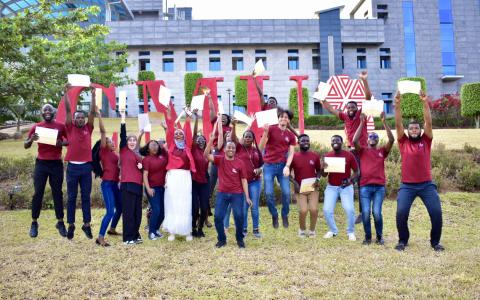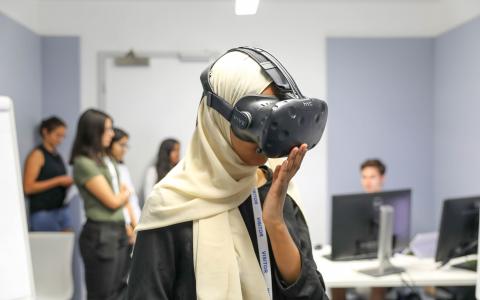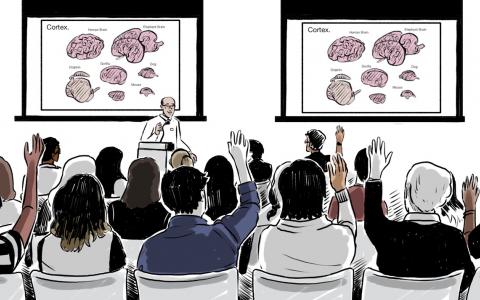
Shaping futures in neuroscience – A case study from TReND-CaMinA
The TReND-CaMinA course brings together talented scientists from across Africa for a transformative two-week introduction to computational neuroscience. Through the course, students are introduced to foundational concepts of neurobiology and machine learning.
We spoke with two participants who shared how the programme is already shaping their career paths and changing their perspectives.
Stephen Ngumbi Kiilu
Stephen’s interest in science started at school in Kenya, when he realised his strength and skills lie in maths. He found that statistics suited him and continued to study maths at undergraduate level. It was during his Master’s degree in Mathematical Sciences at the African Institute for Mathematical Sciences (AIMS) in Rwanda that he decided to move towards machine learning.
“Everything feels connected. Someone at each step of my career has introduced me to the next thing. During my Master’s at AMMI someone introduced me to the TReND courses. The TReND-CaMinA course assisted me to apply and be selected to The Simons Computational Neuroscience Imbizo and also to my current research fellowship, at the University of Tübingen. Every step is a good opportunity to learn from different people.”
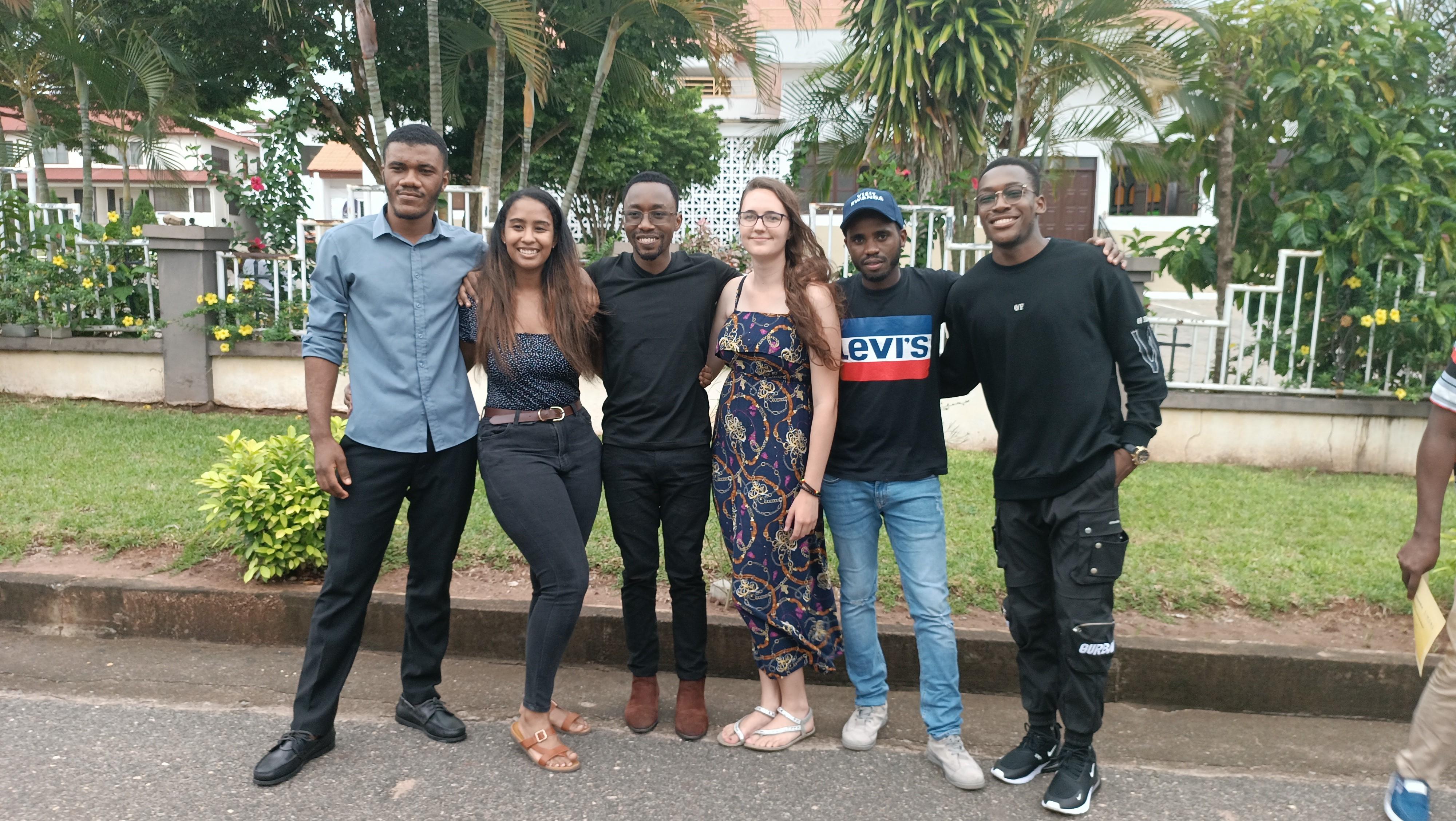
The TReND-CaMinA course also highlighted the interdisciplinary and collaborative nature of computational neuroscience, where those who have studied biology or neurobiology work closely with people trained in software development, statistics and programming.
“For me, coming from a machine learning background, neuroscience was completely new. But the course showed me that to work in computational neuroscience, you don’t need to be an expert in neuroscience, you just need to be good at what you are doing. If you can apply the skills you have, then you can excel.”
Stephen is now a Research Fellow in Machine Learning at the University of Tübingen and is considering his next steps, and potentially undertaking PhD in a related field.
Joy Alejo
Joy Alejo is a paediatric neurologist, working in Nigeria. She sees patients affected by a range of conditions, including epilepsy, cerebral palsy and autism.
“Computational neuroscience is a completely new area for me. I got really excited and started to plan and consider what I could do - it made me realise how much we could achieve. The course opened up a whole new field for me. I think that was really one of the huge impacts.”
Joy is keen to understand how neurons work, and how this knowledge could influence her medical practice. “When I came in for the course, I was thinking about using programming to try to interpret EEGs. I see and interpret a lot of EEGs in my work, but I’ve always wondered if the process could be automated instead of having to manually report them.”
A tutor on the course, Gilgal Justice Ansah, also worked with EEGs, and is studying them to see if they can be used to screen for schizophrenia.
“Working in a teaching hospital, we do research, but this new opportunity was so exciting. I began to wonder if we could use EEGs in understanding the basis of autism, and potentially in diagnosing autism too, as it’s believed that the same parts of the brain are involved in both autism and schizophrenia,” said Joy. Joy is now planning a study with Gilgal to develop algorithms that can help with interpreting EEG data.
“One of the biggest parts of this course was the fact that it brought together people from all over Africa. We got a lot of time to talk. We were able to discuss how things worked in different countries. The course itself exposed us to opportunities we didn’t know about, and opened our eyes to new connections. Apart from across Africa, it also brought together people within countries – that has been huge.”
“I am now considering if we can run a computational neuroscience course for medical students, though I am pacing myself with all these new ideas!”
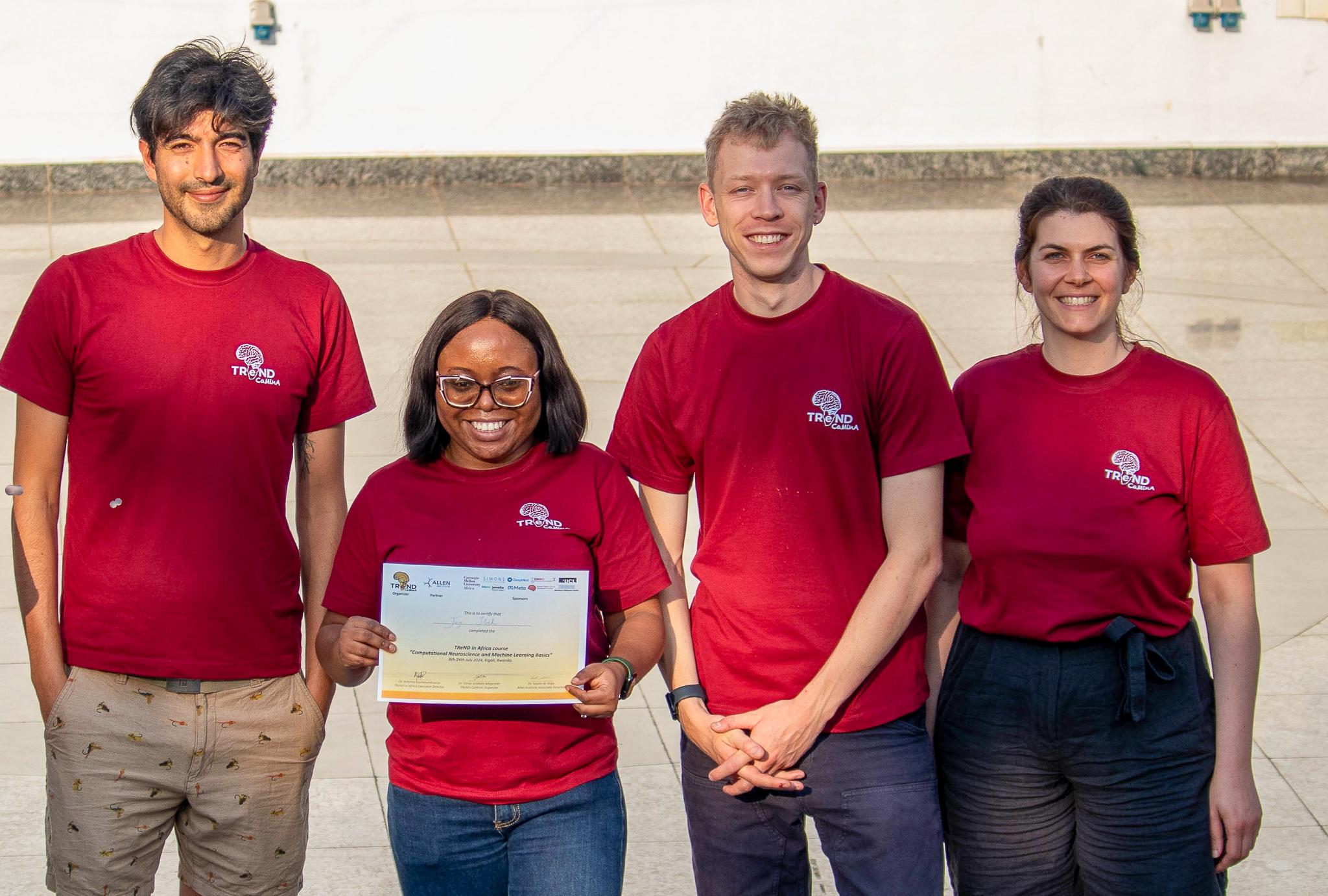
Building a network
A fundamental objective of the course is to build a strong network of talented African scientists to promote these fields across the continent.
Joy and Stephen, together with the other participants and tutors, have kept in touch since the course this summer, sharing research news and updates. They are part of a new generation of skilled scientists, trained in disciplines transforming the way we interact in our world.
Find out more
The SWC is one of the sponsors of TReND-CaMinA. SWC PhD student Tom George is a co-organiser of the course, and several SWC affiliates teach on the programme.
Read more: Computational Neuroscience and Machine learning in Africa.
